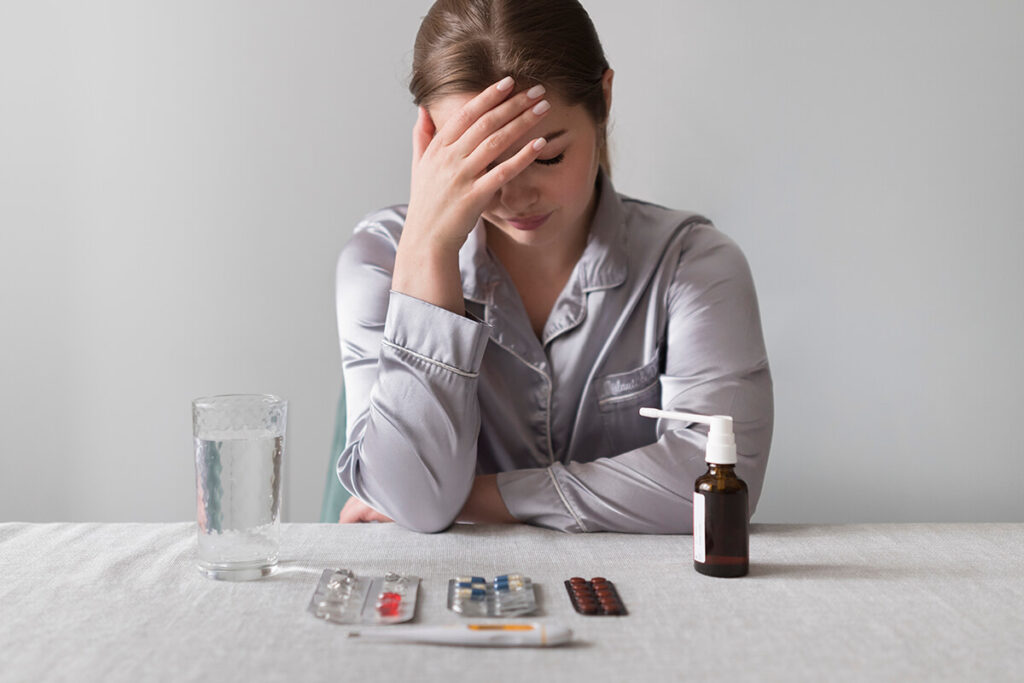Understanding the Connection and Seeking Help
Are you or a loved one struggling with Obsessive-Compulsive Disorder (OCD) while also battling substance abuse? At Denovo Recovery, a Dual Diagnosis Treatment Center in St. Joseph, MO, we understand the complexities of these co-occurring conditions. We are here to provide you with the information and support you need to regain control over your life. In this article, we’ll delve into the relationship between OCD and substance abuse, shed light on the challenges faced by individuals dealing with both, and offer guidance on seeking effective treatment.
Understanding Obsessive-Compulsive Disorder (OCD)
What is OCD?
Obsessive-Compulsive Disorder is a mental health condition characterized by intrusive and distressing thoughts (obsessions) and the repetitive behaviors or mental acts (compulsions) that individuals engage in to alleviate the anxiety caused by these thoughts. These obsessions and compulsions can become all-consuming, significantly impacting an individual’s quality of life.
Common Obsessions and Compulsions
People with OCD experience a wide range of obsessions and compulsions. Obsessions may include fears of contamination, fears of harming others, or disturbing thoughts that go against their values. Compulsions often involve repetitive behaviors such as washing, checking, counting, or arranging items to reduce the distress caused by the obsessions.
The Impact on Daily Life
OCD can disrupt daily routines, relationships, and overall functioning. Simple tasks may take excessive time due to compulsive behaviors, leading to frustration and isolation. The constant battle against obsessions and compulsions can be mentally exhausting, contributing to heightened stress and anxiety levels.
Substance Abuse: A Dual Battle
The Link Between OCD and Substance Abuse
It’s not uncommon for individuals with OCD to turn to substances like drugs or alcohol in an attempt to alleviate their distress. The use of substances might temporarily reduce the intensity of obsessions and anxiety, creating a dangerous cycle of reliance.
Self-Medication and Coping
People with OCD may use substances as a form of self-medication. They may find that drugs or alcohol temporarily escape the overwhelming thoughts and feelings associated with their condition.
Escalating Symptoms
Unfortunately, relying on substances can lead to a worsening of OCD symptoms over time. The initial relief is short-lived, and the need for substances to cope becomes more pressing, potentially resulting in addiction.
The Vicious Cycle: OCD Fueling Substance Abuse
Anxiety and Urges
OCD triggers anxiety and distressing urges. The urge to engage in compulsive behaviors can become so overwhelming that individuals may turn to substances to numb these feelings.
Seeking Relief through Substances
Substances initially offer relief from the distressing emotions caused by OCD. Individuals may feel a sense of calmness or temporary reprieve when using substances.
Temporary Relief and Long-Term Consequences
While substances might provide temporary relief, they do not address the underlying causes of OCD. Over time, the need for substances can lead to addiction, worsen mental health symptoms, and create a cycle that is difficult to break.
Dual Diagnosis Treatment: Breaking the Chains
Integrated Approach to Healing
Dual Diagnosis treatment is designed to address both OCD and substance abuse simultaneously. This integrated approach recognizes that these conditions are interconnected and require a comprehensive treatment plan.
Addressing Underlying Triggers
Effective treatment delves into the underlying triggers that contribute to both conditions. Therapy sessions help individuals understand the relationship between their OCD and substance abuse, empowering them to develop healthier coping mechanisms.
Therapy and Support Groups
Therapeutic interventions, such as Cognitive Behavioral Therapy (CBT) and Exposure and Response Prevention (ERP), are essential for recovery. Support groups offer a safe space for individuals to share their experiences and learn from others facing similar challenges.
Hope and Recovery: Taking the First Step
Recognizing the Need for Help
Acknowledging the need for help is the first step towards recovery. It takes courage to reach out and admit that OCD and substance abuse are affecting your life negatively.
Reaching Out to Professionals
At Denovo Recovery, we have a team of experienced professionals specializing in Dual Diagnosis treatment. We provide personalized care to address the unique needs of each individual, offering hope for a brighter future.
Embracing a New Beginning
Recovery is possible. By seeking help, you are taking the first step toward embracing a new beginning. With the proper support and treatment, you can regain control over your life and experience lasting positive change.
FAQs
Can OCD be a trigger for substance abuse?
Yes, individuals with OCD may turn to substances as a way to cope with the distress caused by their obsessions.
What is Dual Diagnosis Treatment?
Dual Diagnosis treatment addresses co-occurring mental health and substance use disorders simultaneously.
Is recovery from Dual Diagnosis possible?
Absolutely. Individuals can achieve lasting recovery with the right treatment, support, and dedication.
How can I help a loved one with OCD and substance abuse?
Please encourage them to seek professional help and offer your unwavering support throughout their journey.
What sets Denovo Recovery apart in treating Dual Diagnosis?
Our holistic approach, experienced team, and personalized treatment plans make us a trusted choice for Dual Diagnosis care.

